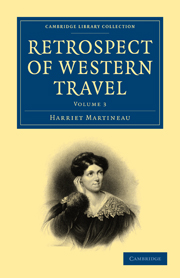Summary
“Diis manibus.”
Ancient Inscription.As might have been predicted, one of the first directions in which the Americans have indulged their taste, and indicated their refinement, is in the preparation and care of their burial-places. This might have been predicted by any one who meditates upon the influences under which the mind of America is growing. The pilgrim origin of the New England population, whose fathers seemed to think that they lived only in order to die, is in favour of all thoughts connected with death filling a large space in the people's minds. Then, in addition to the moving power of common human affections, the Americans are subject to being more incessantly reminded than others how small a section of the creation is occupied by the living in comparison with that engrossed by the dead. In the busy, crowded empires of the old world, the invisible are liable to be forgotten in the stirring presence of visible beings, who inhabit every corner, and throng the whole surface on which men walk. In the new world, it is not so. Living men are comparatively scarce, and the general mind dwells more on the past and the future, (of both which worlds death is the atmosphere,) than in the present. By various influences death is made to constitute a larger element in their estimate of collective human experience, a more conspicuous object in their contemplation of the plan of Providence than it is to, perhaps, any other people.
- Type
- Chapter
- Information
- Retrospect of Western Travel , pp. 272 - 293Publisher: Cambridge University PressPrint publication year: 2010First published in: 1838



